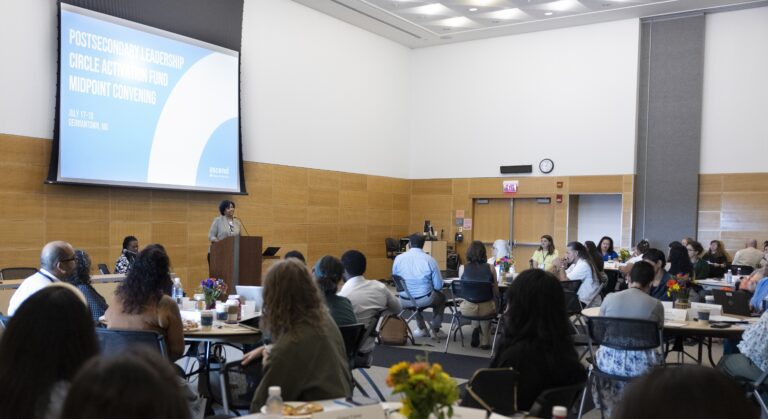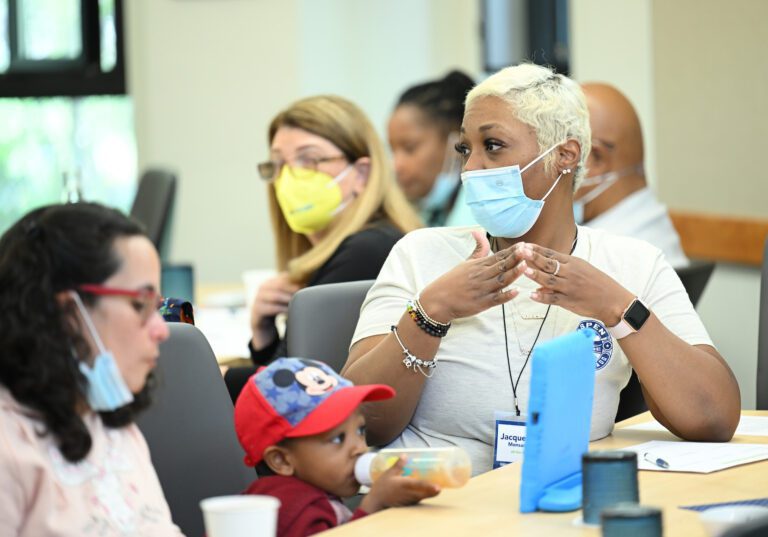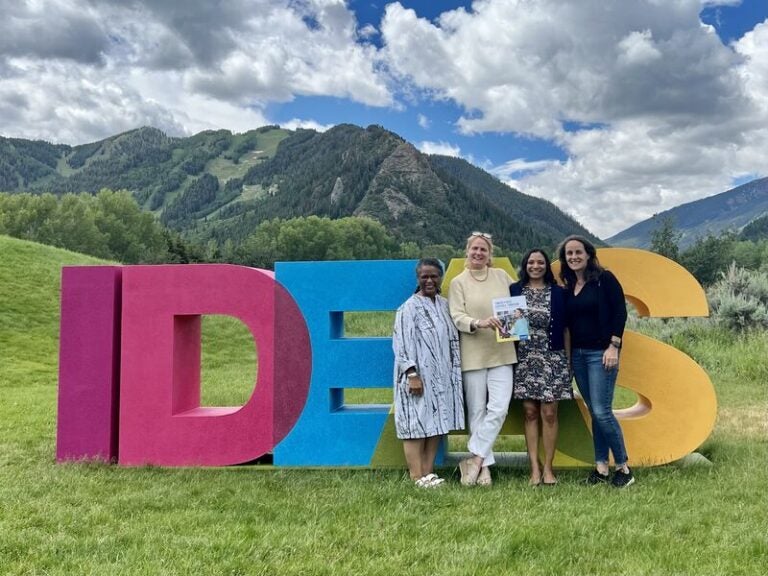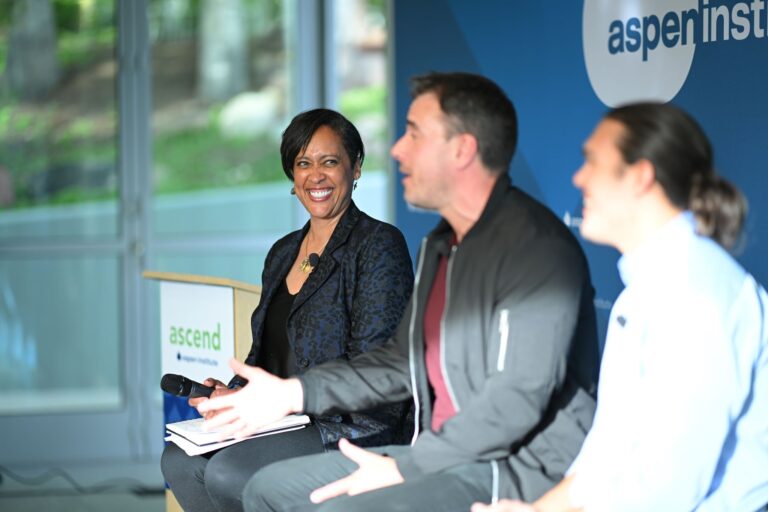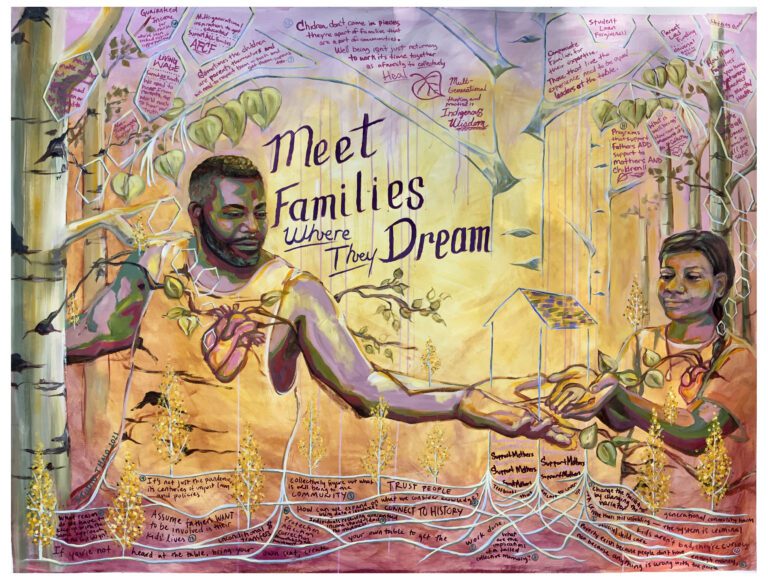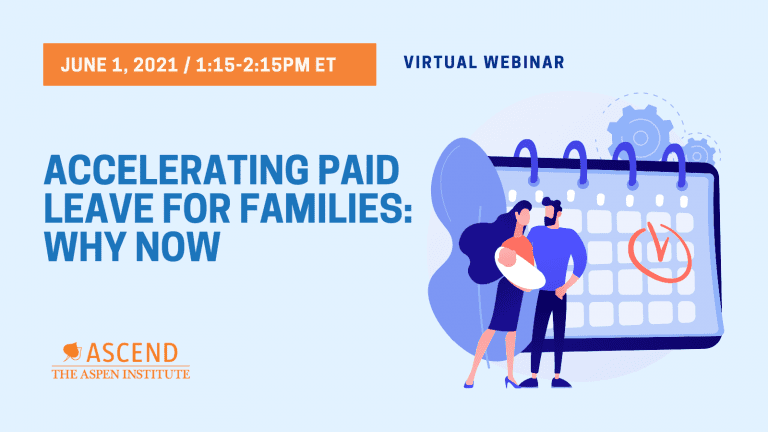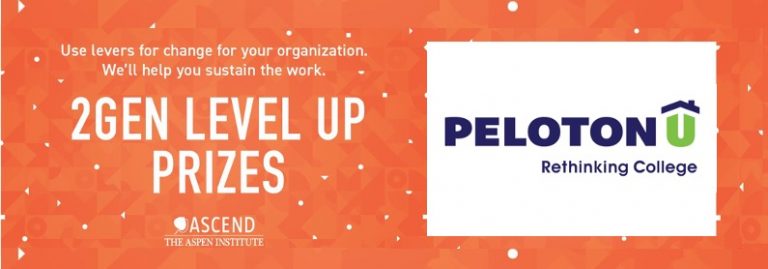Aspen ThinkXChange 2019: 240 Leaders Convene to Advance Family Prosperity
Families must be at the center of any and all work to address intergenerational poverty. That’s why our Aspen ThinkXChange 2019, which focused on using a two-generation (2Gen) approach to advance family prosperity, began the way that it did – with more than 240 leaders (parents, practitioners, and policymakers) listening and learning from families.
At the opening plenary session, four parents shared their perspectives on what works and doesn’t work when it comes to addressing intergenerational poverty, as well as the barrage of barriers that they and other families must overcome. As Ebony Beals, a mother in the Springboard To Opportunities program who participated in the opening plenary, highlighted, one of these barriers is the false public narrative that many have about families living in poverty, one that places blame on individuals – that is, the families themselves – instead of systems. This is especially true when it comes to families of color like Beals’.
“Racism still lives, and people look at us as if we are bottom feeders,” Beals said. Her words were reinforced by Kilolo Kijakazi, fellow at the Urban Institute, in her plenary remarks on the racial wealth gap: The racial wealth gap was created by structural racism, not individual choices. It can be closed, but it requires policy change, not changing people’s behavior.
Setting the table so parents are equal experts is critical – whether in local, state, or national-level conversations. Over the course of the four-day-long convening, Beals’ voice and the voices of other parents remained central in all 35 ThinkXChange sessions – central not just as parents, but also as problem-solvers. (As Beals said later, “I don’t want to be just a voice; I want to be a part of the action.”). These sessions were organized around the following six tracks, the first five of which are principles for the 2Gen approach. An electronic copy of the agenda and other materials can be found here.
- Track outcomes for children and the adults in their lives together.
- Engage and listen to the voice of families.
- Ensure equity.
- Foster innovation and evidence together.
- Align and link systems and funding streams.
- Create cycles of family prosperity through policy and community action.
ThinkXChange 2019 featured
a spotlight on the learnings of the Aspen Family
Prosperity Innovation Community, a partnership with the Robert Wood Johnson Foundation to identify
ways to ensure all families find opportunity and thrive at the intersection of
health and economic security. Ascend released the Family
Prosperity Innovation Community Index, which highlights the 25 valuable resources and tools that Family
Prosperity partners created over the past two years to advance
family-supportive policies. Equity is a critical component to designing
and implementing family-supportive policies, such as paid family leave, child
care, lactation policies, and others. As Erika Moritsugu of the National
Partnership for Women and Families, a Family Prosperity partner, said, “We
need policies that allow women of color and lower income women — who have
always had to work — to finally to be able to take care of themselves and their
families.”
A kinetic energy was palpable throughout the Aspen Meadows campus. In some sessions, leaders
were brought to tears by the stories shared by another. In others, a policy or
program innovation shared by one leader inspired another to do something
similar in their community. Some leaders created their own sessions in between scheduled
sessions in an effort to move 2Gen approaches forward in their communities.
There were sessions on universal basic income, paid family leave, student parents, maternal and infant mortality, data-informed decision making, mental health, and engaging fathers, among other issues. There were sessions on changing the public narrative on poverty – the issue that Beals highlighted during the opening plenary.
During one such session titled “The Revolution Might Be Televised,” leaders explored how strategic communication strategies can be used to change this narrative. During another such session titled “Narratives and Numbers,” leaders explored the relationship among data, narrative, and power, specifically how to ensure that data used by practitioners and policymakers is informed by the lived experiences of parents and used in ways to help – not hurt – families living in poverty.
For example, in the “Narratives and Numbers” session, Lori Pfingst, senior director of the Economic Services Administration in the Washington State Department of Social and Health Services and an Ascend Fellow, shared that while her organization had a lot of data about infant mortality in one particular Native community, it wasn’t until they started talking to the community that they were able to collect data that was key to helping them solve the problem: the death of an infant was less likely for new mothers who had a strong relationship with a woman elder in the community.
“Ask the people you’re collecting data on what the questions should be,” Pfingst said.
Narratives and numbers were once again the focus at the racial wealth gap plenary, as mentioned above. During this plenary, Dr. Jennifer Richeson, a professor of psychology at Yale University, highlighted how the nation’s “things are getting better” racial progress mythology influences its racial wealth gap mythology, specifically its mythology that the racial wealth gap has been closing over the past 70 years.
To highlight this point, she showed ThinkXChange participants the graph below – “Perceptions of Racial Wealth Equality 1960-2019.” First she showed them the “perception” line, then she showed them the “reality” line. When she showed leaders the “reality” line, the room gasped.
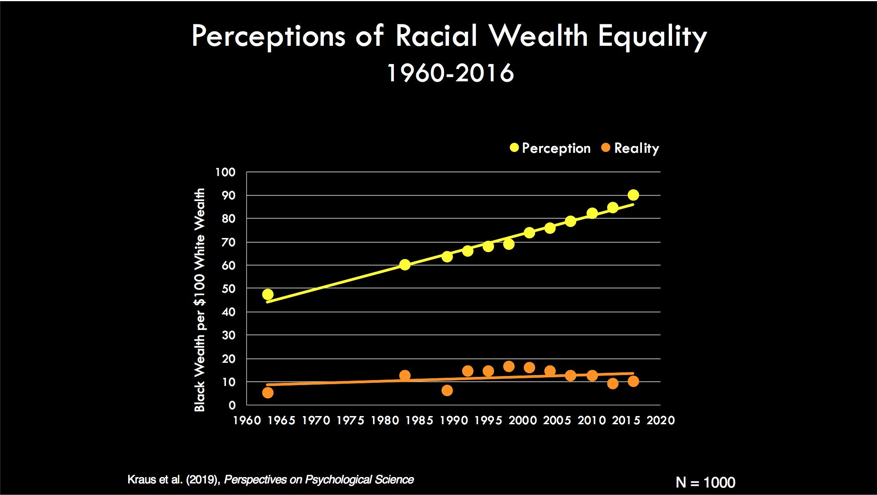
It was these types of insights – from Beals, Richeson, and so many others – that made ThinkXChange a success. And it’s these types of insights and innovations that will help us and the larger Ascend community change the national narrative on poverty – in both words and deeds.
Header photo, from left to right: Cristina Guajardo, parent ambassador and resident of the Jeremiah Program; Ebony Beals, parent participant in Springboard to Opportunities; Drayton Jackson, parent and vice chair of the Washington State Governor’s Poverty Reduction Work Group; Megan Bell-Rodriguez, student parent at Central New Mexico Community College; and Vinice Davis, venture partner with Omidyar Network). © The Aspen Institute: Photo by Hal Williams
Related Posts
